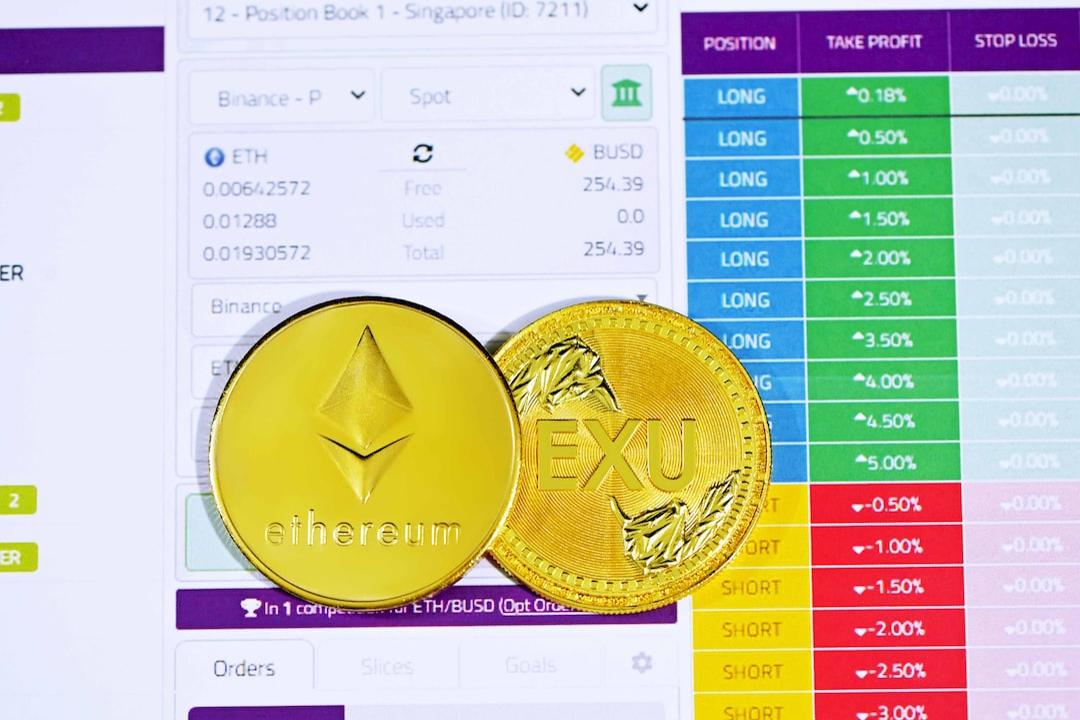Are Cryptocurrency Exchanges Always Accomplices in Scams? It Might Not Be What You Think
Despite their efforts to cooperate with law enforcement and minimize illicit activities to less than 1%, cryptocurrency exchanges still struggle to shake off their negative reputation.
In addition to money laundering, exchanges actually play a positive role in combating fraud.
Why do cryptocurrency exchanges struggle to shed their negative reputation despite actively engaging in money laundering prevention and cooperating with law enforcement?
Money laundering and whitewashing are the original sins of cryptocurrency exchanges.
In a rainy morning in the Netherlands, the Fiscal Information and Investigation Service (FIOD) received an urgent phone call. It was regarding a multi-million euro fraud case that put the assets of countless families around the world at risk. The mastermind behind this scam was a fake gambling platform called ZKasino.
ZKasino promised investors hefty returns on their funds within 30 days under the guise of a “blockchain casino.” However, when investors eagerly awaited their returns, they discovered it was all part of a carefully orchestrated scheme.

Prompted by the community, Binance’s Financial Crime Compliance (FCC) investigation team, the world’s largest exchange, swiftly began researching the case. They collected and verified vast amounts of information from public sources, identifying the mastermind behind the fraud, who turned out to be a Binance user.
As the police investigation delved deeper, Binance provided crucial transaction tracking information, enabling law enforcement to swiftly and comprehensively understand the details of the case, ultimately leading to the arrest of a suspect involved in fraud, embezzlement, and money laundering.
This case is just a microcosm of global financial crimes. However, what role do exchanges really play in preventing fraud cases?
Damien Ho, a member of Binance’s Asia Pacific team, said, “Assuming we want to expand the adoption of cryptocurrencies globally, we need more people to be willing to enter this industry and use related services. It is our responsibility to work with governments, law enforcement agencies, and regulatory bodies to create a safer environment.”
What roles do exchanges play in preventing fraud cases?
Collaboration One: Working with law enforcement agencies
Despite the various forms of fraud in the cryptocurrency space, whenever fraud syndicates want to withdraw digital assets, they inevitably have to go through exchanges to convert these cryptocurrencies into legal tender such as USD or TWD.
In other words, exchanges play a vital role in tracking stolen funds on the blockchain.
However, even if exchanges detect suspicious behavior from users, without sufficient investigation or evidence, they cannot conclusively determine if the transaction is fraudulent.
Exchanges must comply with the instructions of law enforcement and judicial bodies to freeze or seize assets.
The Criminal Investigation Bureau stated that the “165 Anti-Fraud Consultation Hotline System” has established a mechanism for requesting information from 9 Taiwanese virtual asset exchange operators, including MaiCoin, to expedite the investigation of virtual asset-related cases.
However, due to the large number of overseas virtual asset exchanges, the police’s ability to collaborate is limited. Currently, Binance is the only exchange willing to cooperate with domestic law enforcement agencies.
Collaboration Two: Collaborating with prosecution units for education and training
Blockchain, as an emerging technology, poses a new challenge for prosecution units. Terminologies and technologies like cold and hot wallets, cross-chain bridges, and other proprietary terms can be overwhelming, but they are essential knowledge that frontline personnel must understand.
Therefore, “Blockchain Fundamentals” and “Online Investigation Techniques” have become mandatory courses for prosecution personnel.
MaiCoin and BitoPro, Taiwan’s top two local exchanges, regularly share their anti-fraud experiences and investigation techniques related to virtual currencies with the Investigation Bureau, Criminal Investigation Bureau, and Public Prosecutors Office. This includes being invited to law enforcement agencies for educational training, sharing common fraudulent behaviors and case studies in exchanges, as well as how to trace money flows through blockchain data, aiming to jointly prevent fraud with the police.
Cheng Guangtai, the founder and CEO of BitoPro, also stated that his priority as the Chairman of the VASP Association is to establish regulations for anti-money laundering and anti-fraud measures. He hopes to achieve the development of financial technology in a systematic manner, giving regulatory authorities peace of mind and ensuring the public’s safety.
Binance, which collaborates with prosecution units worldwide, has provided education and training to over ten institutions in Taiwan, including the Criminal Investigation Bureau’s Criminal Police Bureau, High Prosecutors Office, and various district prosecutors’ offices, from June 2023 to the present. The content includes the basic principles of blockchain, common criminal patterns and investigation techniques, as well as introductory money flow tracing. They share fraudulent techniques and case experiences from fraud cases worldwide with Taiwan’s prosecution units.
Damien Ho said, “In 2023, we responded to over 58,000 such law enforcement requests worldwide, including thousands in Taiwan.”
Are cryptocurrencies synonymous with scams?
With the rise of digital finance, cryptocurrencies have quickly captured the attention of global investors due to their innovation and convenience. However, as the market explosively grows, related scams have become rampant. This situation has led many to unconsciously associate cryptocurrencies with “scams.”
But is it really the case?
According to data from Chainalysis, a blockchain analytics platform, the proportion of illicit transactions in virtual asset transactions was approximately 0.42% in 2022, and the latest data for 2023 is around 0.34%.
Damien Ho said, “According to past United Nations statistics, the proportion of illicit activities in traditional financial transactions is 2 to 5%. So, compared to traditional financial transactions, illicit transactions in virtual assets are much lower in scale.”
However, it cannot be denied that blockchain and cryptocurrencies are still relatively new concepts and technologies for society. This makes it easier for people who are less familiar with them to fall victim to scams.
“Suppose someone asks you online if you want to invest in a stock that is guaranteed to make a profit. Most people would not easily accept it. However, due to a lack of understanding about cryptocurrencies, such as which channels and platforms are more reliable and trustworthy, people may fall victim to scams by purchasing cryptocurrencies through over-the-counter trading,” Ho explained.
Therefore, the key to preventing fraud lies in raising users’ knowledge and awareness.
To ensure that newcomers can safely enter the cryptocurrency market and reduce the number of victims, both domestic and overseas exchanges provide rich online and offline educational resources to help users understand how to use cryptocurrencies safely, identify scam tactics, and learn to protect their assets.
Online learning resources provided by exchanges:
– Binance Academy
– OKX Academy
– XREX
– HOYA Academy
Offline educational events organized by exchanges:
– Maicoin School
– BitoPro Academy
Damien Ho also reminded novice investors to pay more attention to and learn about blockchain and cryptocurrencies, understand trustworthy trading platforms and investment projects. When making purchases or transfers, it is essential to carefully verify the transaction addresses to ensure the legitimacy of the transaction parties. Additionally, one should be wary of investment schemes promising excessively high returns to avoid falling into fraudulent traps.
As cryptocurrencies gradually become mainstream investment tools, related scams are becoming more diverse. It is the responsibility of exchanges to protect platform users’ safety and establish security and compliance standards for the cryptocurrency industry.
Both investors and industry participants should enhance their awareness of fraud prevention, strengthen their knowledge and skills, and actively cooperate with law enforcement agencies to establish more stringent prevention and response mechanisms. This will not only safeguard funds but also promote the healthy development of the cryptocurrency market.

